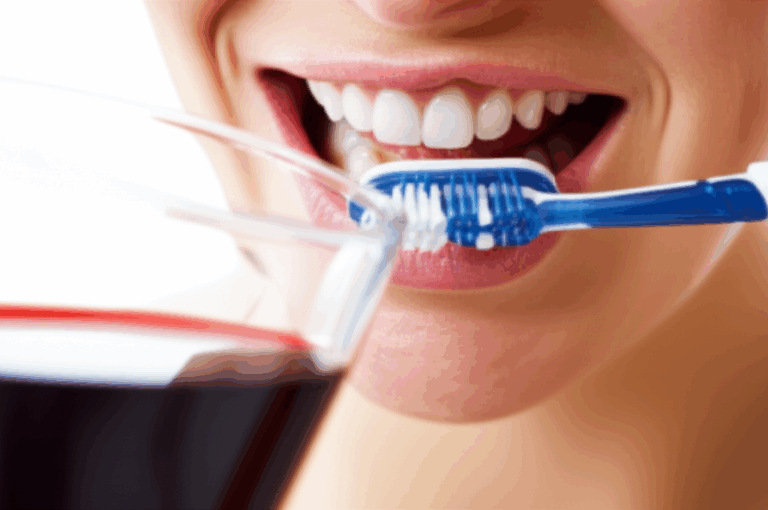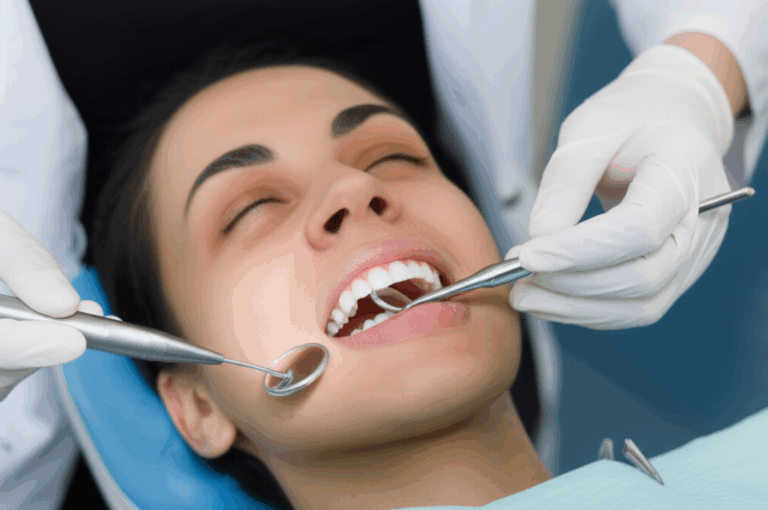
Is My Dentist Scamming Me? Red Flags, Verification, and What To Do
That weird feeling you get after getting a big bill or a long list of treatments from your dentist—it happens to a lot of people. Maybe you left their office shocked at the high price, confused about what you actually need, or worried that things felt rushed. “Is my dentist scamming me?” is a real question you might ask. It’s normal to be careful about your health and your money, and you should get clear answers.
Let’s work through these worries together. I’ll show you why being suspicious is actually looking out for yourself, what warning signs to notice, how to check if your dentist is right, and what to do next. You’ll finish this article ready to go to your next dental visit with more confidence and know how to spot problems.
In This Article
- Why Am I Worried My Dentist Is Scamming Me?
- Common Red Flags at the Dentist’s Office
- Dental Procedures That Are Often Unnecessarily Recommended
- How To Double Check Your Dentist’s Advice
- What Should I Do If I Suspect Dental Fraud?
- How To Find a Dentist You Can Trust
- Key Takeaways to Empower Your Next Visit
Why Am I Worried My Dentist Is Scamming Me?
Dental work is pricey and can be hard to understand. One day, you go for a regular checkup and everything’s fine. The next visit, you get a paper that looks like a long car repair list—crowns, root canals, and “deep cleanings.” If you suddenly hear about a bunch of new problems, feel pushed to decide right away, or feel like they are selling you stuff instead of helping, no wonder you’re worried.
Trust is the main thing between you and your dentist. But because dental work can cost a lot, seems complicated, and you don’t always know what’s going on, it’s easy to feel nervous. Some common reasons people start to wonder include:
- Big or Expensive Treatment Plans: You felt fine before, but now your dentist says you need a lot of things done, and all fast.
- Vague or Fast Talking: They don’t really explain why you need something, or brush off your questions.
- Pushing You to Do It Right Now: They say you have to act soon, and don’t give you time to think or get another opinion.
- Different Answers from Different Dentists: Suddenly you have many problems another dentist never mentioned.
- You Feel Rushed or Ignored: You leave your questions unanswered, or you feel like they just want to get you in and out.
If these sound familiar, you are not being a bad patient. You’re just watching out for yourself. Let’s look closer at the warning signs.
Common Red Flags at the Dentist’s Office
You should always be able to ask questions. Some dentists are great, but a few are just out for the money. Here’s what to keep an eye out for.
Money-Related Red Flags
- Higher Prices Than Usual: If your cleaning or filling costs way more than what other people pay, ask for details.
- No Clear List of Charges: You should get a bill that explains every charge. If not, that’s not good.
- Want You to Pay or Get a Loan Right Away: Are they trying hard to get you to sign up for payments on the spot?
- Push Expensive Cosmetic Fixes: Do they always jump to the most costly or fancy solution, without telling you cheaper options?
- Bills Change During Treatment: Did you start with one price, but halfway in, it goes up for no clear reason?
- Bundles for Lots of Work at Once: Do they offer a “deal” if you get a lot of things done at once, even if they’re not related?
Treatment and Diagnosis Red Flags
- Small Problems Turned Into Big Fixes: Like a little cavity, but now they say you need a crown or a root canal.
- Lots of X-Rays: Are you getting way more X-rays than you think you need? Too many aren’t usually necessary and cost more.
- Always the Most Complicated Fix: Do they skip over easy solutions or waiting, and only offer big treatments?
- Every Visit, Something is Urgent: Does every appointment turn into a new “emergency”?
- Your Diagnoses Don’t Match Past Visits: If you go to a new dentist and suddenly have lots of problems, check against older records.
Behavior and Office Red Flags
- Avoiding Your Questions: Good dentists explain things clearly. If yours is weird about your questions, watch out.
- Bad Communication: Does their team seem rushed, unclear, or not helpful?
- Staff Come and Go Often: If you see new people every visit, there might be something wrong in the office.
- Always Running Late or Cancelling: Some mess-ups are normal, but all the time could mean a poorly-run place.
- Lots of Bad Reviews About Charges or Pushy Selling: Check online for any trends in patient stories.
Just because a dentist recommends something expensive doesn’t mean they’re a scammer. But if you see a few of these at once, slow down and check things out.
Dental Procedures That Are Often Unnecessarily Recommended
Some treatments show up a lot, sometimes because they make more money for the office than to actually help you. Here’s a straight-forward rundown.
- Crowns: Dentists often say a crown is needed for a big cavity or old filling. Sometimes, though, a normal filling or a smaller fix will work and cost less. If a tiny cavity suddenly needs a crown, ask why and if you have other options.
- Root Canals: Needed for a tooth with an infected or dead nerve. But sometimes these are recommended when a filling, or even pulling the tooth, could be better. If your tooth isn’t really hurting or the damage is small, double check.
- Deep Cleanings (Scaling & Root Planing): Needed if you have real gum disease and deep pockets around your teeth. If your gums are just a little puffy, a standard cleaning could be enough. Getting deep cleanings every single visit is a red flag.
- Lots of Fillings for Small Cavities: Not every very small cavity has to be drilled. Many can be watched or managed with fluoride until they really need work.
- Wisdom Teeth Removal: Some people truly need their wisdom teeth out, but if yours are healthy and not causing trouble, think twice about surgery.
- Gum Grafts or Big Gum Surgeries: Major treatments can help bad gum problems, but mild issues sometimes heal with easier, cheaper care.
Every mouth is different, but if you keep hearing about big expensive fixes—and your records say your teeth are usually good—don’t be shy about asking more. In fact, insurance and consumer reports show about 70% of people end up with a much shorter and cheaper treatment plan when they ask for a second opinion!
How To Double Check Your Dentist’s Advice
You’ve just been given a big bill, or a huge list of work. Do this before you say yes:
1. Get a Second Opinion
This is your best move! Dental insurance and the American Dental Association both say to do this before starting big treatments.
How?
- Take your written plan, X-rays, or any photos you’re given.
- See another dentist—not just someone else at the same office. Go to a different company or practice.
- Compare what they say. Do both plans match, or is one much simpler?
2. Know Your Insurance
Find out what your insurance covers and any rules about what isn’t covered. Look at your Explanation of Benefits (EOB) for odd split charges, items that seem wrong, or any case of billing for more expensive work than you actually got.
3. Check Out the Dentist and Office
- Look up their record: Go to your state’s dental board online to see if they’ve had problems or complaints.
- Read reviews: Don’t just look at the stars—read what people actually say about overcharging or pushy stuff.
- Ask about their experience: Are they part of trusted groups like the ADA?
4. Ask for Your Dental Records
You can get a copy of your X-rays, notes, and full treatment plan. If your dentist refuses or acts funny about this, that’s a warning.
5. Get Clear Bills and Explanations
Always ask: Why this? What else can I do? What happens if I wait? If they can’t answer in plain words, or seem annoyed by your questions, you can say no.
What Should I Do If I Suspect Dental Fraud?
Speaking up takes courage, but you could be helping yourself and other people.
1. Keep Everything
Hold on to bills, treatment plans, all letters, X-rays, names, dates, and notes about every talk.
2. Report to the State Dental Board
Dental boards check on bad, dishonest, or dangerous dentists, and can punish them.
3. Tell Your Insurance
Insurance companies look for fraud. They want to hear from patients if they think something is off.
4. Inform Consumer Protection Agencies
If it’s really bad—or seems like the dentist is scamming lots of people—report to your state Attorney General’s office or your local consumer agency.
5. Talk to a Lawyer (If It’s Serious)
If you’re badly hurt or lose a lot of money, ask a lawyer who handles health or dental cases what you can do.
Keep in mind: Not every mix-up means fraud. Sometimes it’s just a different way of treating teeth or a misunderstanding. That’s why records, second opinions, and staying calm help a lot!
How To Find a Dentist You Can Trust
The best way to avoid being tricked? Find a dentist who’s honest and puts you first.
1. Pick Based on Reputation, Not Ads
Ask friends, family, or even your usual doctor or nurse. Trusted opinions matter way more than fancy ads. Also, look for patterns in online reviews—are people happy with how things are explained, and do they say the office tries to save them money?
2. Ask if They Focus on Preventing Problems
Do they talk about prevention—like teachings, regular checkups, and watching things—more than big, expensive treatments?
3. Look for Honesty
A good dentist will:
- Give you a simple list of prices.
- Explain every choice and cheaper or easier options in clear words.
- Let you think about your options, never push you too hard.
4. Check Their Experience
If they belong to dental groups like the ADA, that means they likely follow good rules and keep up on their training.
5. Notice How They Talk With You
Do they see you as a real person? Do they take time to answer everything, or rush you?
Sometimes, having a dentist who works with a trustworthy crown and bridge lab or digital dental lab helps you get better results and makes prices clear.
Key Takeaways to Empower Your Next Visit
Let’s end with the most important things you should remember:
- It’s normal to follow your gut. If something feels wrong, you have every right to ask.
- Always get a second view for big work. It’s smart—not annoying.
- You can ask for clear bills, simple details, and copies of all your records. This is your right.
- Know the warning signs—money, treatment, or office issues—and listen to your own discomfort.
- Keep track and report if you need to. State boards and insurers help protect patients.
- A good dentist is there to help, not rush or pressure you. They explain things, answer honestly, and let you decide.
You’re not rude—just informed. Dentistry should never feel like a high-pressure sale. With these tips, you’ll be stronger in looking after yourself, spot the warning signs, and—most of all—take care of your teeth and your money.
If you want more real-life help choosing dental work or want to know more about dental labs, check out our practical guide. And if you fight dental worry, you’re not alone! See our patient dental resources for advice and support.
Remember: You have a right to clear, fair, and respectful dental care. Always feel free to ask questions, take your time, or get a second opinion. It’s your mouth and your money—make choices that are best for you.








